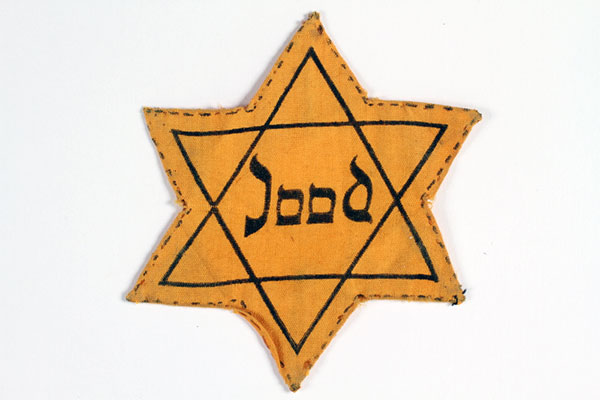What was it like to live as a young Jew in Berlin during the Nazi deportations? This exhibition details the life of Manfred Lewin, a young Jew who was active in one of Berlin’s Zionist youth groups until his deportation to and murder in Auschwitz-Birkenau. Manfred recorded these turbulent times in a small, hand-made book that he gave to his Jewish friend and gay companion, Gad Beck. Mr. Beck, a Holocaust survivor who again lives in Berlin, donated the booklet to the Museum in December 1999. The exhibition centers around the 17-page artifact, which illustrates the daily life of the two friends, their youth group, and the culture in which they lived.
To understand why Manfred Lewin, a young Jew in Nazi Berlin, wrote this book in 1941 for his friend Gad Beck—to understand why Gad, 19 and Jewish, risked his life attempting to save Manfred from deportation—read these words from the play that brought them together. German writer Friedrich von Schiller’s Don Carlos: "No Matter what you plan on doing, will you promise to undertake no act without your friend? Will you make me this promise?" Friendship, valor, and the fight for freedom were the ideals of this 18th-century German drama. In 1941, Gad and Manfred played the starring roles in their Jewish youth group’s reading of the play.
Curator's Note and Interview
Nearly sixty years after Manfred presented him with his gift, Gad Beck entrusted the United States Holocaust Memorial Museum with this fragile and intimate artifact. During the development phase of this exhibition, it became evident how the meaning of this artifact was changed by Manfred’s deportation and death in Auschwitz and by the passing years. The booklet, once only meaningful for Gad and Manfred, became a time capsule, a reminder of a friendship, of a group, and of the events that destroyed them all.
Building the exhibition has been a search to understand and to document the different layers of this complex story. Along the way, archival sources and photographs led to surprising insights. Critical memories and testimonies of survivors, however, have been the main, and sometimes the sole, source of information in reconstructing the meanings of this artifact. Sixty years later, of course, memory has been colored and altered by time. Some memories have been lost, some seem fresh and immediate, and others emerged through the work on this exhibition. The booklet that Manfred once made as a private gift to Gad, now allows us glimpses into the daily life of Jewish youth in Berlin before and during the deportations. It reminds us of how difficult it is to really understand what happened and how much we can never know.
Related Resources
- Oral history interview with Gad Beck
- Gad Beck papers
- Primary sources on Gender, Sexuality, and the Holocaust
Thanks
Special thanks to Gad Beck and Jizchak Schwersenz.
Thanks to Carol Brown Janeway for her translation of the German text, and to the Zemer Chai Choir for the performance of the song “Ba'a menucha layageya.”
Thanks also to:
Beate Kosmala, Zentrum für Antisemitismus-Forschung Berlin
Philipp Reclam jun. Verlag
Friedrich Veitl, Metropol Verlag, Wichern Verlag
Christine Zahn, Jüdisches Museum Berlin




